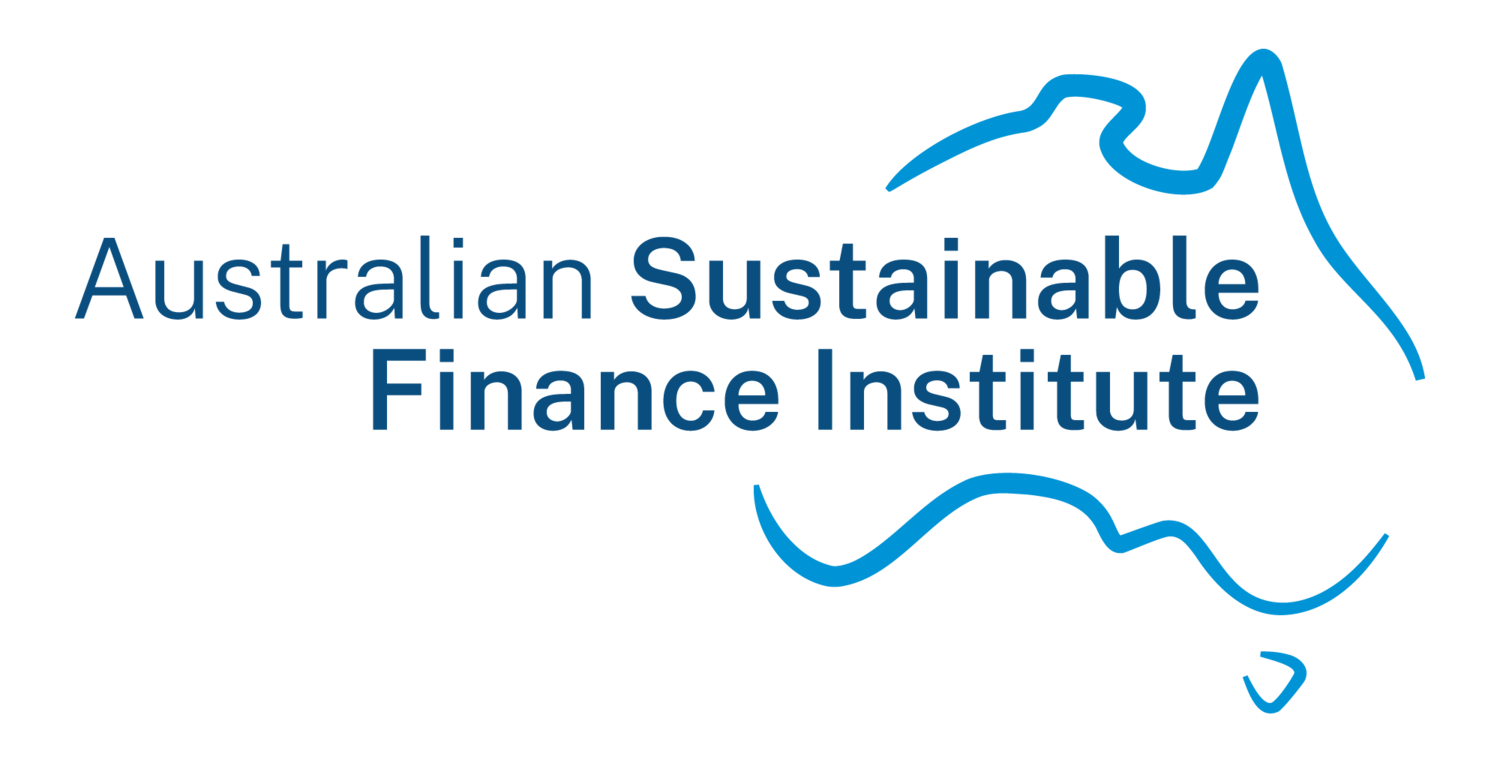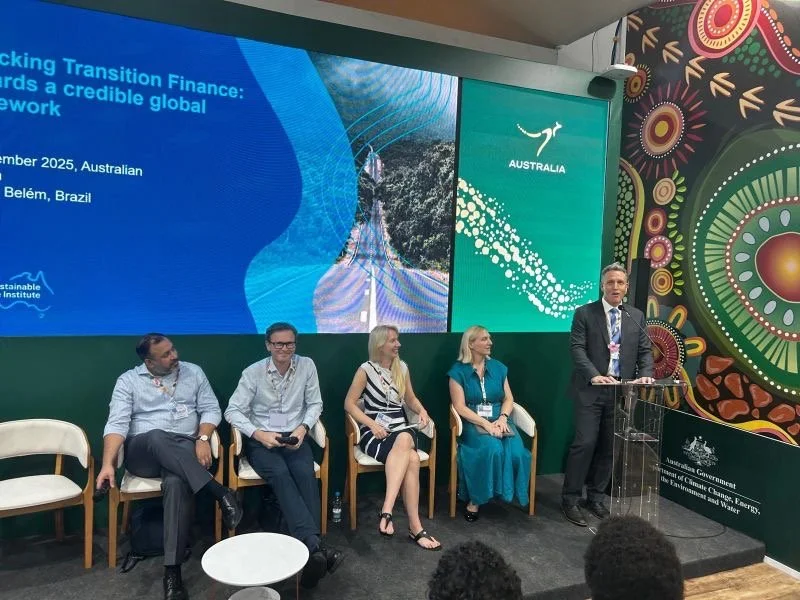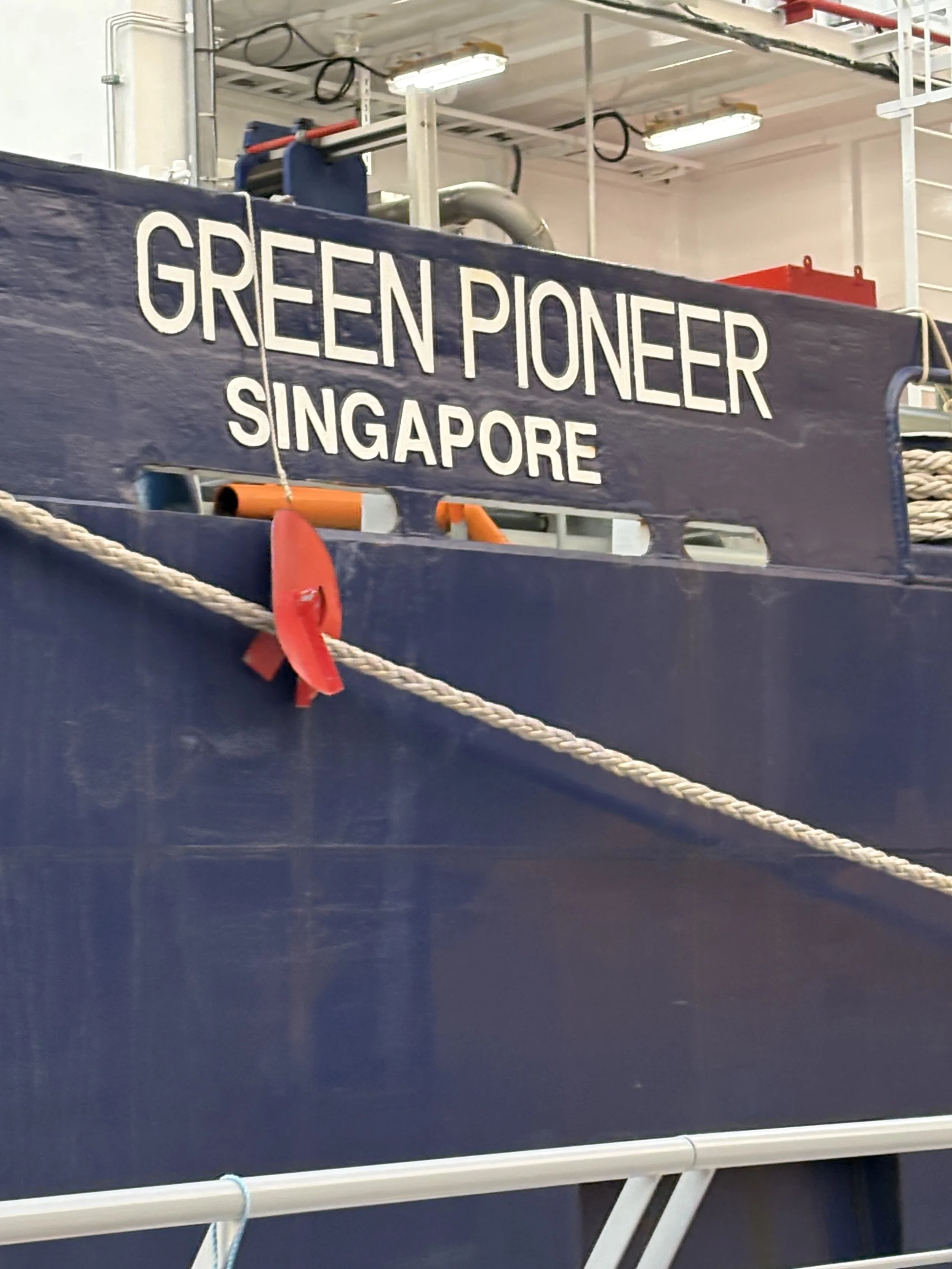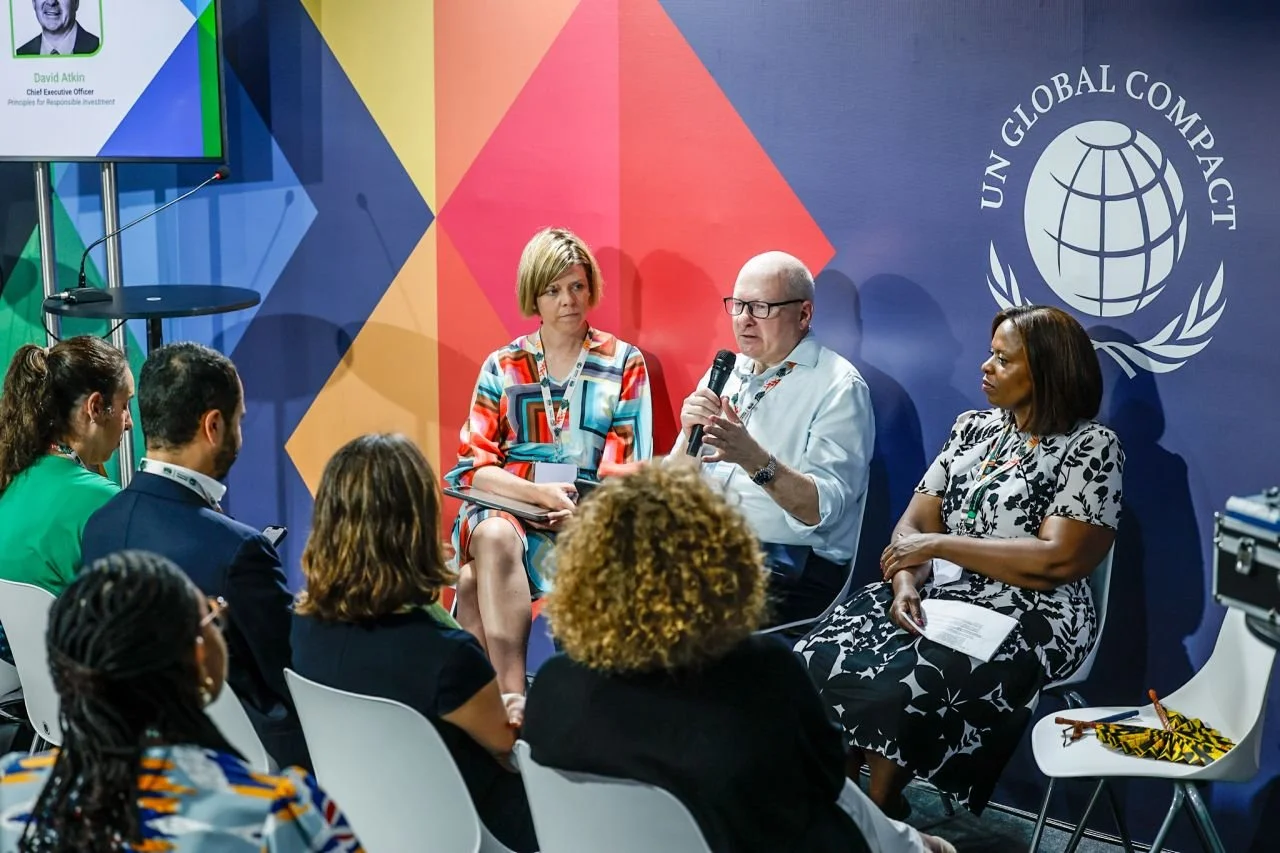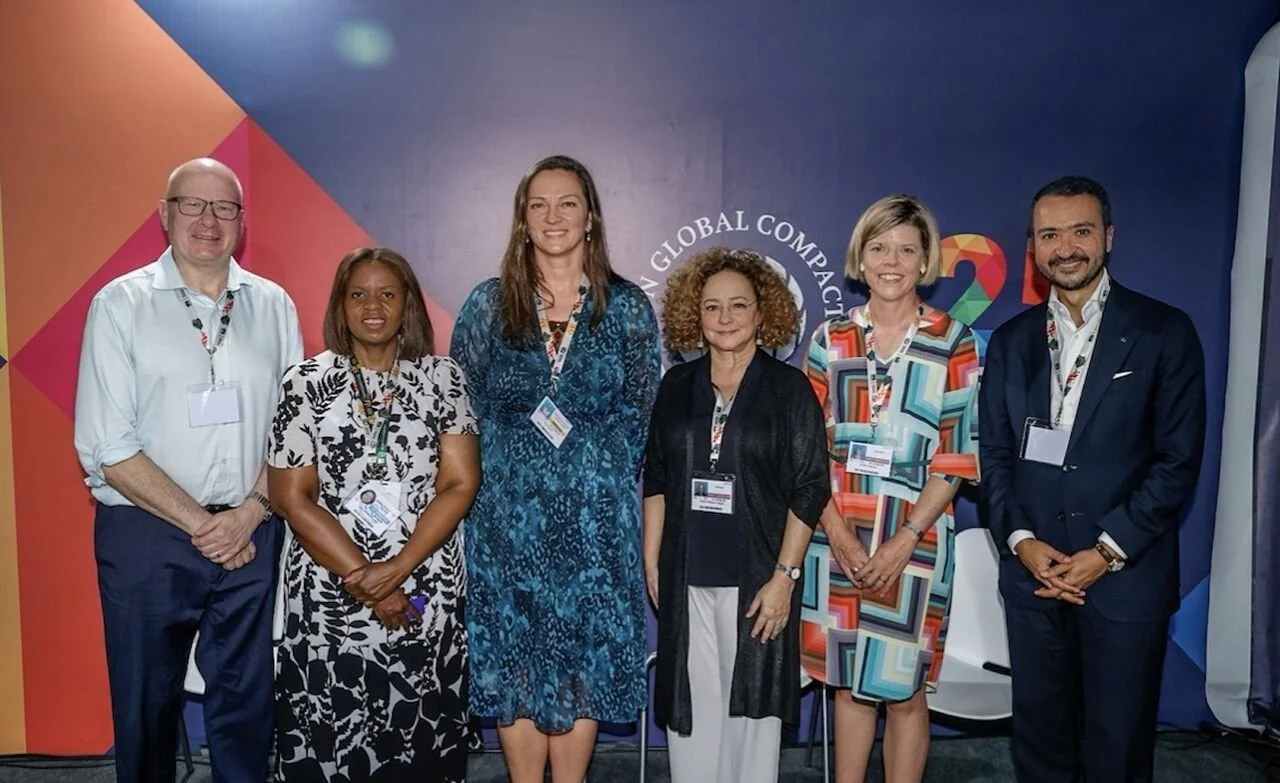Transition Finance takes centre stage at COP30
The Australian Sustainable Finance Institute (ASFI) has returned from COP30 in Belém with renewed momentum and a deeper set of insights to help accelerate Australia’s transition to a sustainable, resilient and inclusive economy.
Across the week, ASFI joined global partners from industry, finance, government and civil society to examine how credible, science-based definitions and aligned policy settings can unlock investment at the scale required — particularly in hard-to-abate sectors and emerging markets.
Showcasing Australian leadership on transition finance
Arriving in Belém on Monday, the ASFI delegation headed straight to the Australian Pavilion — making it just in time for our panel session, Unlocking Transition Finance: Towards a Credible Global Framework, which explored how consistent, science-based definitions can unlock investment in hard-to-abate sectors and support an orderly, inclusive transition.
Assistant Minister Josh Wilson opened the event, emphasising the value of the work ASFI has led through the Australian Sustainable Finance Taxonomy and the need for credible, internationally aligned approaches to transition finance.
The session was moderated by ASFI Chief Executive Kristy Graham and featured a panel comprising Nicole Yazbek-Martin (ASFI), Rahul Ghosh (Moody’s Ratings), Nathan Fabian (PRI) and Maria Nazarova-Doyle (IFM Investors). The discussion explored the foundations of credible transition finance and the emerging global expectations shaping market practice.
Key themes included the recognition that:
transition is not a label attributable to any single fuel or sector
global alignment and science-based credibility are essential to scaling capital flows with integrity
market confidence relies on clear, consistent expectations to ensure capital is directed towards activities genuinely aligned with net-zero pathways.
As global principles for credible transition finance continue to consolidate, the panel noted the importance of connecting national models — including Australia’s taxonomy — with international frameworks to support interoperability and build high-integrity standards that work across markets.
International Collaboration to Unlock Capital at Scale
Beyond the Pavilion event, ASFI participated in discussions on taxonomy interoperability, Brazil’s supertaxonomy initiative, decarbonisation pathways for industrial sectors, climate-aligned business activity, and Brazil’s Circle of Finance Ministers initiative.
These conversations reflected a growing global convergence on what constitutes high-integrity sustainable finance and the role of clear definitions, strong governance and aligned policy in unlocking capital at scale.
ASFI Chief Executive Kristy Graham said Australia has a critical contribution to make:
“Countries around the world are working to build credible, investable pathways for climate and nature. COP30 reaffirmed how essential clear definitions and strong governance are for scaling private capital. We return with a suite of ideas to support Australia’s own transition, from taxonomy interoperability to blended finance models that can work across our region.”
Innovation in hard-to-abate sectors
The ASFI team also visited Fortescue’s Green Pioneer, the world's first ammonia dual-fuel vessel, showcasing early innovation in alternative maritime energy.
The project represents one of the first practical trials of ammonia as a marine fuel and reflects the scale of experimentation underway across heavy industry. The visit underscored the importance of credible transition-finance frameworks to assess emerging technologies in hard-to-abate sectors and ensure capital flows to solutions aligned with long-term decarbonisation pathways.
Engaging in high-level global discussions
COP30 also brought together senior leaders for high-level discussions on global climate and finance priorities. Kristy Graham joined the 13th Annual High-Level Meeting of Caring for Climate, where leaders from business, government and the United Nations explored policy and finance solutions needed to accelerate progress towards global climate goals.
13th Annual High-Level Meeting of Caring for Climate - COP30 Belem, Brazil.
Discussions focused on how stronger alignment between policy and practice can accelerate a 1.5°C-aligned transition, and business representatives highlighted companies are ready to scale solutions, but progress depends on enabling policies that unlock investment, reduce financial burdens in emerging economies, and support the shift away from fossil fuels.
Participants pointed to the importance of redirecting fossil-fuel subsidies, removing barriers to renewable energy investment, improving permitting processes and strengthening data systems to turn science-based targets and transition plans into real-world emissions reductions.
There was also consistent emphasis on the economic imperative for action. Estimates shared during the session underscored that continuing with business-as-usual pathways could cost up to five times more than the investment required to keep warming to 1.5°C, while climate-related damages are already adding around US$500 billion each year to the global economy.
At the same time, opportunities remain significant: global clean-energy investment exceeded US$2 trillion last year, and a shift to a circular economy could unlock up to US$4.5 trillion by 2030.
Kristy also joined the UN Global Compact–PRI session on “Sustainable Investment: Scaling Solutions and Capital”, which examined the role of blended finance, strengthened investment principles and enhanced insurance solutions in supporting capital flows to emerging markets.
The session highlighted that de-risking mechanisms and resilience investment are increasingly seen as essential components of effective transition finance.
Join ASFI’s COP30 Debrief
ASFI will unpack these insights further at our upcoming COP30 Debrief, where experts involved in the talks will provide first-hand reflections on the negotiations, announcements and emerging trends shaping the next phase of climate and transition finance.
